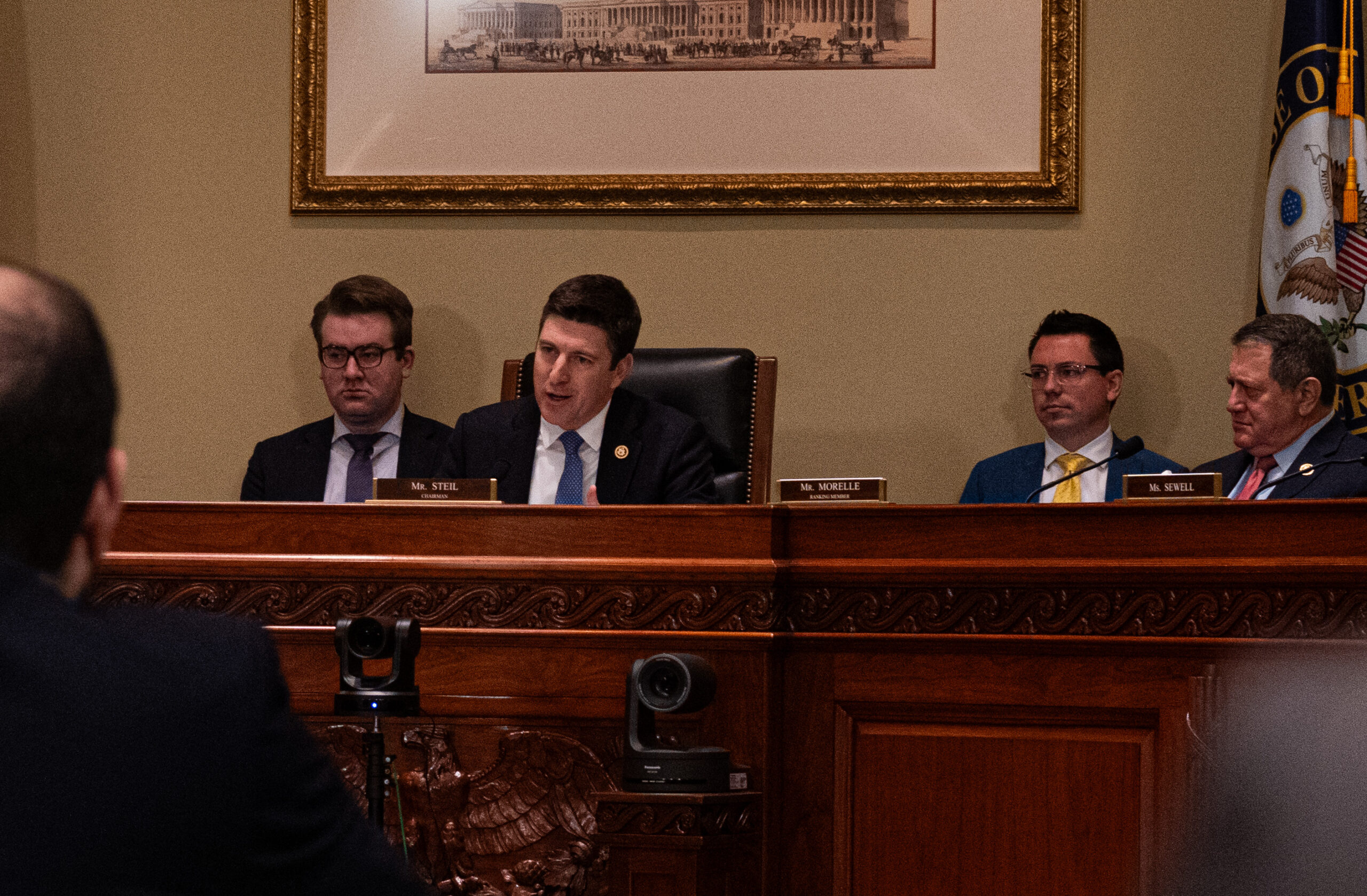WASHINGTON — House Republicans want to pass a federal law banning private aid to the administration of state and local elections, contending that practice they allege unfairly helped Democrats in 2020.
Ahead of the last presidential election, Facebook founder and CEO Mark Zuckerberg donated $350 million to the Center for Tech and Civic Life for grants to local election departments.
In Wisconsin, the Center directed a disproportionate amount of its funding to large cities and “areas of the state that received grants saw statistically significant increases in turnout for Democrats,” Dr. Will Flanders, research director of the Wisconsin Institute for Law & Liberty, a Milwaukee-based conservative law firm, told a hearing Wednesday of the House Administration Committee.
“Elections are partisan,” said the panel’s chairman, Rep. Bryan Steil, R-Wisconsin, “but elections administrations should never be partisan. The millions of private dollars being funneled to local offices raises serious questions about the conditions placed on their use.”
The Center’s grants were largely used by election departments to purchase personal protective equipment like masks, disinfectant, and hand sanitizer as well as to supplement funding for additional employees on election day and purchase educational mailers.
But Flanders charged that mobile voting sites funded by Zuckerberg’s group violated Wisconsin a state law prohibiting absentee voting locations that present an advantage to one political party over the other. This claim was upheld in a recent decision issued by a Racine County, Wisconsin, judge.
Fellow witness Mollie Hemmingway, editor-in-chief of conservative online publication The Federalist, mentioned allegations against consultant Michael Spitzer-Rubenstein, who was hired by the city of Green Bay to aid with the 2020 election process after the city’s election department received funding from the Center, abused his access to the city’s election database.
These allegations were disputed in a report released by the city in 2021.
A similar complaint about the organization was filed with the Federal Election Commission in 2021. The FEC subsequently unanimously decided in July 2022 that there was no reason to believe the Zuckerberg group committed any wrongdoing.
The Zuckerberg center announced in 2022 that it would no longer be contributing directly to election departments, and unveiled the U.S. Alliance for Election Excellence — “a five-year, $80 million strategy to envision, support, and celebrate excellence in U.S. election administration.”
Steil vowed to ban what the Republicans dubbed “Zuckerbucks,” and applauded the 27 states that have already passed restrictions or outright bans elections from receiving private donations. The lawmaker backs the “End Zuckerbucks Act,” sponsored by Rep. Claudia Tenny, R-New York, which was reintroduced in March 2023.
Democrats on the committee agreed that elections should not be privately funded, but insisted that the answer to cash-strapped election departments lies in more adequate public funding rather than more restrictions.
“This majority is attacking transparent nonprofit funding for election administration, while doing nothing to stop the flow of billions of dollars of dark money that flood our politics and drown out the voices of everyday American voters,” said Rep. Joe Morelle, D-New York.
Morelle suggested that philanthropic organizations would have no reason to help fund election commissions if those commissions had “adequate funding” in the first place.
“(If) states are going to ban private support from local election jurisdictions, then the federal government will likely need to step in to provide additional support,” Dr. Zachary Mohr, associate professor at the University of Kansas School of Public Affairs and Administration, wrote to the committee.
Zuckerberg’s center said in a statement to Capital News Service that the underfunding of election administrations persists.
“What no one said today is that Congress was asked to allocate $4 billion in funding to support safe and secure elections in 2020, but only gave 10 cents on the dollar for the actual need,” the center said.
“While the times have changed, the problem has not. Congress has still not stepped forward with predictable federal funding that would support safe, secure and accessible elections for every American voter.”

